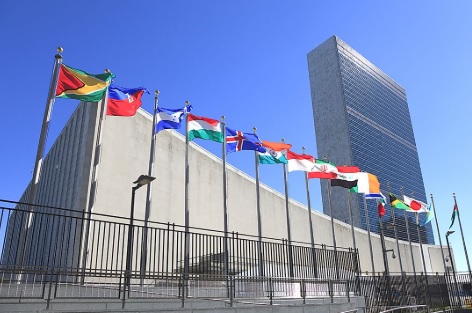The Strategic Role of AI and Automation in UN Audits
By Secom / Serint

#momentoauditaONU
The increasing investment in technology by the United Nations (UN) oversight bodies has led to more efficient audit processes and significant results. Through strategic adoption of robotic process automation (RPA) and artificial intelligence (AI), audit teams have achieved substantial gains in productivity and scale.
One of the major challenges in UN audits is ensuring broad audit coverage despite the operational complexity of the entities. These organizations use different Enterprise Resource Planning (ERP) systems that integrate essential functions such as finance, human resources, production, and logistics. Many audit procedures require direct checks within these systems. To address this complexity and boost audit efficiency, the Brazilian Federal Court of Accounts (TCU) has made considerable investments in automation.
In an audit of the United Nations Children’s Fund (UNICEF), for example, robotic automation performed in just a few hours a task that would have taken several weeks. Paulo André Carvalho, an auditor from the Data Analysis Unit (ND) of the Department for Auditing United Nations Operations (SecexONU), noted: “One of the bots operated continuously for three days, carrying out over 6,300 automated checks in UNICEF’s accounting system, which allowed us to detect indications of accounting misstatements.”
ChatTCU
Beyond automation, AI has also been integrated into various stages of the audit process. One of the most notable tools is ChatTCU, a generative AI solution developed by TCU.
Rafael Encinas, an auditor from the UNFPA management audit team, highlighted the tool’s contribution: “We used ChatTCU to summarize large volumes of information, identify critical issues in lengthy documents, and structure audit planning matrices and findings. We also analyzed meeting transcripts to extract insights that enhanced the quality of our work.”
Another innovation was the creation of AI agents using SharePoint, enabling the development of assistants capable of answering questions based on diverse document repositories. This functionality significantly speeds up access to key information during audits.
In another use case, AI and automation were combined during a UNICEF audit procedure. AI extracted account numbers and balances from bank confirmation letters. These values were then automatically compared with records in the organization’s accounting system, enabling the identification of discrepancies that would likely go undetected through conventional sampling.
All these innovations and automation solutions are being shared across other teams at SecexONU and have the potential to be scaled to other departments within TCU, the Office of the Comptroller General (CGU), and state and municipal audit courts involved in the initiative.
New opportunities
In the second half of 2025, TCU plans to conduct dedicated IT audits of UN entities and funds. These missions may involve the temporary assignment of auditors for periods of up to three months. Professionals interested in future opportunities at SecexONU can register using the form available at the link below: